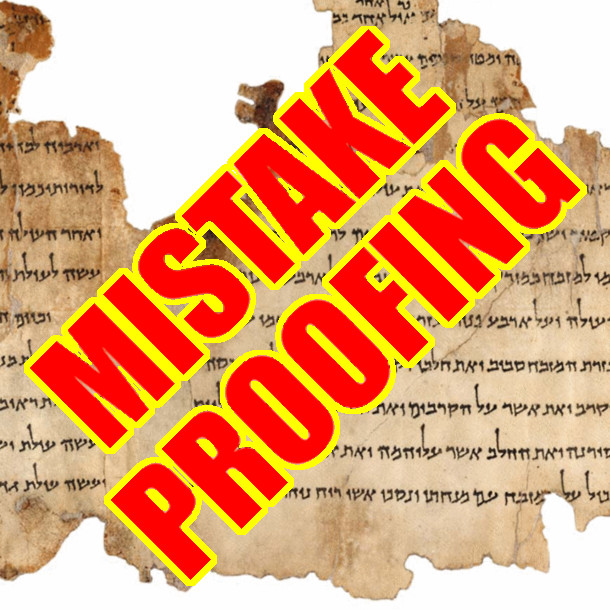

We used to call it "foolproofing" but now that term is seen to be politically incorrect. "Foolproofing" was first used in 1902, although it is not clear by whom. In Japan, "foolproofing" was called "baka yoke".
In 1961, a bloke at Toyota in Japan, also felt "baka yoke" sounded politically incorrect and changed it to "poka yoke", or "mistake proofing".
Today consultants try to sound important by using trying to say it in Japanese, rather than simply saying "mistake proofing".
The use of techniques to prevent errors or mistakes dates back at least thousands of years. Long before the printing press, when Jewish scribes were copying the bible by hand, the number of letters and words would be counted, as a way of mistake proofing. The editor would also make sure that the middle word on each page of the copy was the same as the middle words on the manuscript being copied.
In the 1950's computers used paper punch tapes. Like the ancient scribes, an extra hole would be used as a "parity check". It was an odd/even count of the number of preceding holes, to help ensure there were no errors in the preceding holes.
In 1961, the CRC (Cyclical Redundancy Check) was invented, not only to check computer data for mistakes, but to correct minor errors. CRC checks use a number of additional digits rather than the parity check's single digit.
Today there are countless examples of mistake proofing from plugs, to jigs, to latches, to tags. These are devices or techniques used in every industry, to prevent errors and improve efficiency and safety. However nothing is ever guaranteed. I'm a keen rock climber and a number of safety devices that were considered "foolproof" have sadly, led to complacency and deaths.
Mistake proofing is not new. It was not invented by Toyota. The term "poka yoke" is used by consultants in the West to try to impresses their gullible clients. It is used to pad the Lean fad. Toyota does not use Lean or Six Sigma fads. Toyota folk think, use Quality Circles, and focus on Quality as taught by Professor Deming.
KEEP IT SIMPLE.
KEEP IT IN ENGLISH.
 by Dr Tony Burns BE (Hon 1) PhD (Chem Eng)
by Dr Tony Burns BE (Hon 1) PhD (Chem Eng)